Twitter CEO and owner Elon Musk is on the hunt for a successor.
“I will resign as CEO as soon as I find someone foolish enough to take the job!,” Musk tweeted on Dec. 20. “After that, I will just run the software & servers teams.”
The remarks came after Musk tweeted a poll on Dec. 18 asking users if he should step down as the head of Twitter less than two months after buying the social media site for $44 billion. Roughly 58% of 17 million respondents voted yes while 43% voted no. Before Musk closed the deal to purchase Twitter, he was expected to temporarily serve as CEO. He confirmed this in November during a trial, stating that he expected to reduce his time at Twitter and find someone else to run the company.
Convincing someone to take over the reins of Twitter is already proving to be tough for Musk, whose rash and seemingly erratic decision-making has sparked criticism from lawmakers, tech executives, advocacy groups and more. He’s flip-flopped on controversial policies such as banning links to rival social networks and temporarily suspending journalists who cover him critically. Twitter has also fumbled the rollout of its $8 per month subscription service Twitter Blue, initially giving blue check marks to users who then impersonated major brands – in the case of insulin maker Eli Lily, to disastrous effect.
On top of that, whoever becomes CEO will have to work with Musk, who’s also the CEO of carmaker Tesla and SpaceX. The world’s second richest human said he wants his workers to be more “hardcore,” expecting them to work long hours with much less time off or freedom out of the office. His approach was so extreme that Twitter was called out by San Francisco’s Department of Building Inspection for illegally installing makeshift bedrooms in Twitter’s San Francisco headquarters, a move Musk tweeted was designed to help “tired” employees. Musk will likely expect any new CEO to sleep at the office, too.
Aside from Musk’s own quirks, Twitter’s new CEO will have to deal with all the problems that come with running a financially struggling social network. Twitter was barely profitable when Musk took over, and his chaotic management style and corrosive politics have led many high-profile advertisers to bail.
In his short tenure at the head of Twitter, Musk also laid off roughly half of the company’s 7,500 employees, and then chased away even more through loyalty demands, “code reviews” and other aggressive moves. That’s raised questions about whether Twitter has enough talent left to keep the company alive.
Twitter, which seems to have vacated its PR department, didn’t immediately respond to a request for comment.
Here are the people who might end up with the job:
A member of Musk’s inner circle
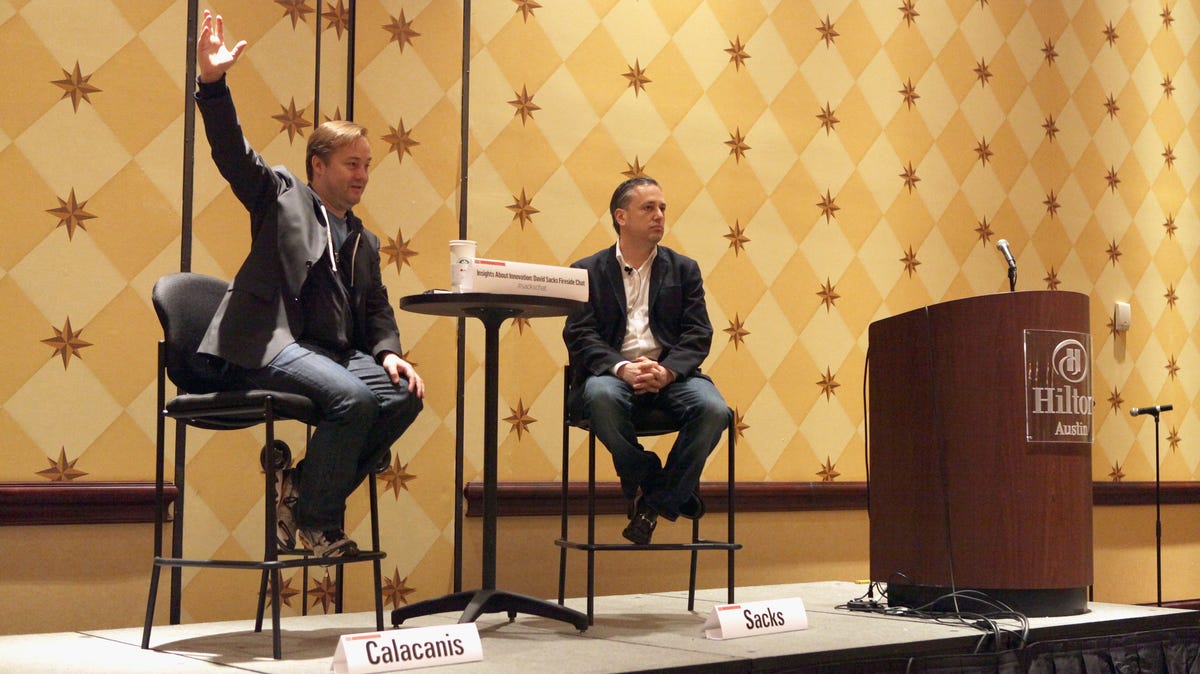
Jason Calacanis and David Sacks
Getty
Some of Musk’s inner circle have already signaled they want the job of Twitter CEO.
Entrepreneur and angel investor Jason Calacanis, who is a friend of Musk, has even told the billionaire in texts that being Twitter CEO is his “dream job.” “Board member, advisor, whatever… you have my sword,” Calacanis wrote to Musk in texts that were released during Twitter’s legal battle with the billionaire.
Calacanis has defended Musk throughout his takeover. On Dec. 18, he polled users about who should be Twitter’s CEO. Only 8.2% of the 13,879 people who voted said that Calacanis should be CEO. “Other” received the most votes with 39.1%.
Craft Ventures partner and former PayPal executive David Sacks, another person within Musk’s inner circle, was floated as an option in the poll. About 31% of users voted for Sacks while 21.6% of voters said Calacanis and Sacks should be co-CEOs.
Steve Davis, another close Musk ally and president of his Boring Company venture, has reportedly even moved his newborn baby to sleep at Twitter’s headquarters while he helps the billionaire. The Boring Company is an infrastructure and tunnel construction company founded by Musk. Davis, who has a background in aerospace engineering, worked at SpaceX so he’s already very familiar with the billionaire’s “hardcore” work culture.
“Foolish enough” for the job? Yes, all of them.
— Queenie Wong, senior writer
Jack Dorsey
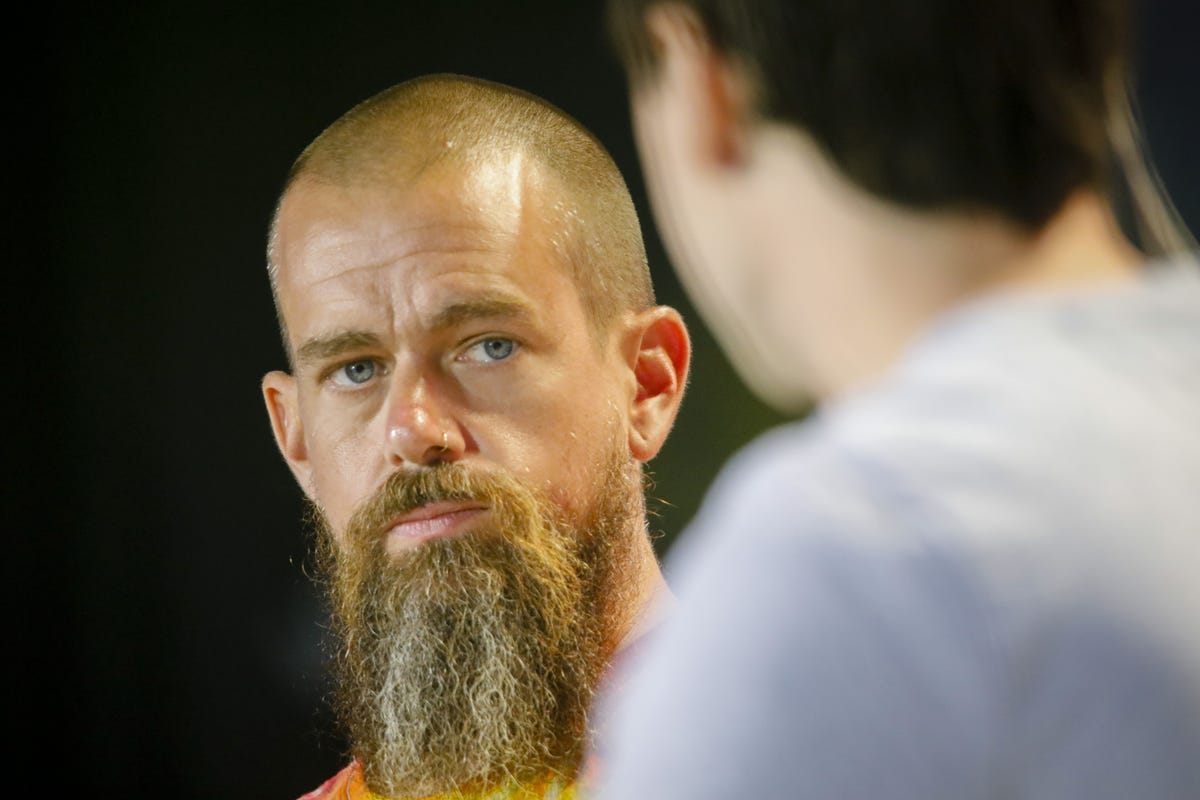
Jack Dorsey
Getty
The Twitter co-founder and former CEO already has a track record of leaving and returning to lead the company again.
Dorsey was Twitter’s CEO after he helped create the platform in 2006 but he was reportedly fired from the job in 2008 over his executive management style. He returned to Twitter in 2015 after Twitter CEO Dick Costolo stepped down amid concerns about stalled user growth. After serving as the interim Twitter CEO, Dorsey got the role permanently that year.
But Dorsey eventually faced pressure from activist investor firm Elliott Management to leave the company. In November 2021, Dorsey resigned from the job.
The only issue is that Dorsey doesn’t want to return as CEO. In May, he replied to a Twitter user who predicted Musk will ask Dorsey to be Twitter CEO.
“Nah I’ll never be CEO again,” he tweeted. When asked who should be Twitter CEO, Dorsey replied “no one ultimately.”
“Foolish enough” for the job? No.
— Queenie Wong, senior writer
John Legere
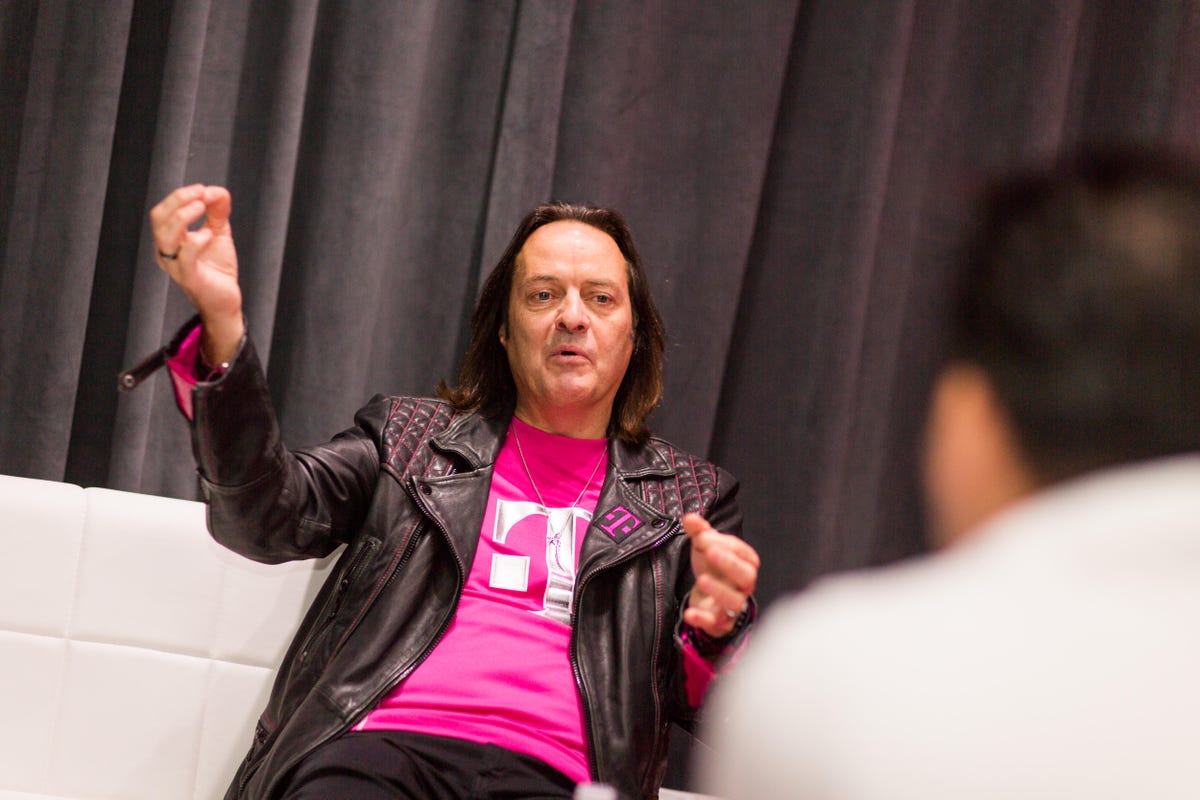
John Legere
Sarah Tew/CNET
Former T-Mobile CEO John Legere already reached out to Musk about running the social media platform, only to be given the cold shoulder.
Hi @elonmusk ,maybe I should run @twitter
You can stop managing daily business, and “content moderation” and then support product/technology, let someone else “run” @Twitter .I’m expensive but so is what you paid for twitter (p.s. please be leadership example of how to tweet
)
— John Legere (@JohnLegere) November 13, 2022
If Legere can get past that initial chilly response, he could be an ideal fit for Twitter. He’s an executive with experience running big businesses that know how to execute. Having turned around T-Mobile from an embattled, nearly left for dead No. 4 player to the second-largest wireless carrier in the nation, he also knows a thing or two about comeback stories.
He also has a history with Twitter, effectively using the platform to bludgeon his larger competitors while earning the respect and loyalty of T-Mobile customers. His “Un-carrier” marketing campaign was as much about Legere’s personality as it was about getting a good deal on your wireless service.
Legere also comes off as brash and unpredictable, but there’s a method to the madness that might benefit Twitter.
“Foolish enough” for the job? Yes.
— Roger Cheng, head of CNET News
Margaret Sullivan
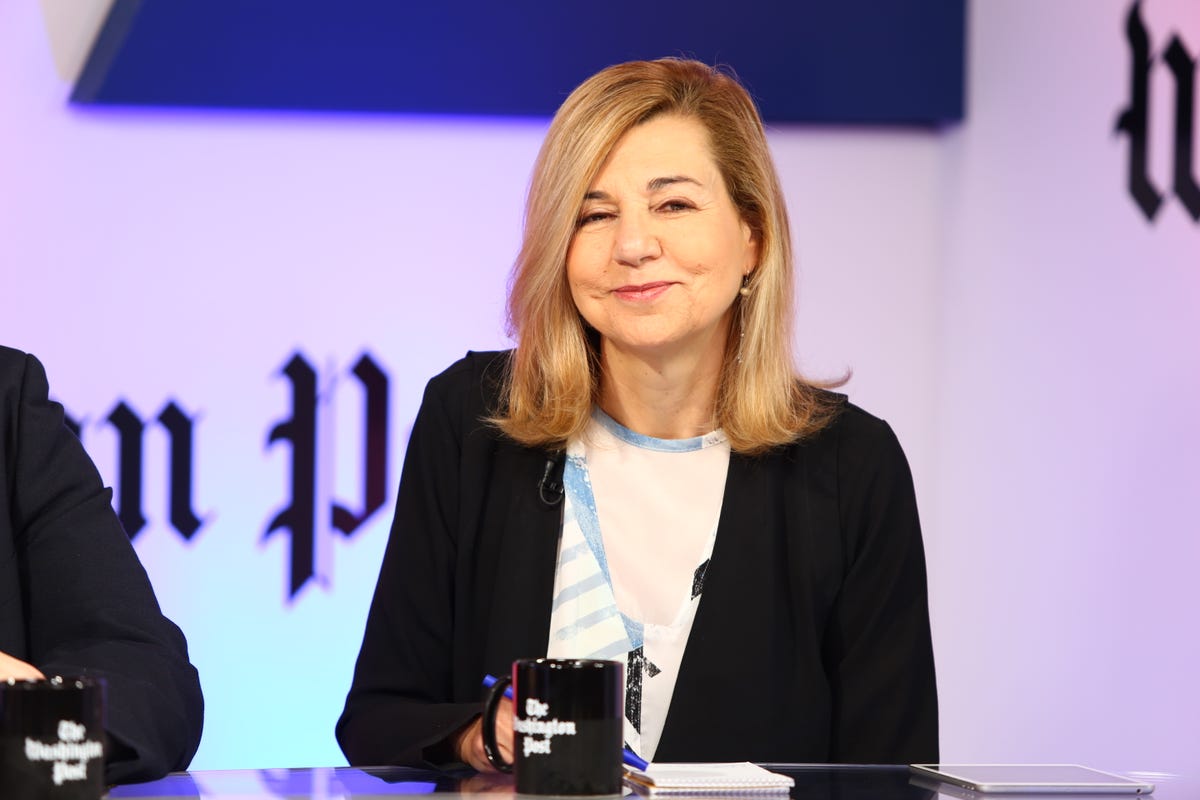
Margaret Sullivan
Getty
The former media columnist for The Washington Post and forward-thinking public editor for The New York Times, Margaret Sullivan has more than a passing knowledge of the power of media platforms to enlighten and empower – or become a breeding ground for disinformation aimed at sowing distrust.
Sure, she’s never served as the CEO of a large, complex organization. So what? She can assemble a leadership team to run operations, technology and content moderation as she goes about the more important work of setting strategy and defining the rules of engagement for a new social media platform where ethics, transparency and trust aren’t just fodder for tweets.
A journalist leading a tech company may make you laugh, but we’ve already lived through more than a few examples of tech companies run by engineers and college dropouts who’ve left us in tears. As Steve Jobs would have said, maybe it’s time to think different.
“Foolish enough” for the job? Too smart to want to clean up a guy’s mess.
— Connie Guglielmo, CNET editor-in-chief
Caterina Fake

Caterina Fake
Getty
Caterina Fake has had a solid run in both the tech industry and in sites centered on media. She started her career in the tech industry managing the community forums of Netscape. Her experience in blogging and online communities led her to create Flickr, a pioneering and popular photo-sharing service, with co-founder Stewart Butterfield. It was sold to Yahoo in 2005 for more than $20 million. Her media credentials also include working as the art director for online news site Salon; co-founding the product recommendation site Hunch with entrepreneur Chris Dixon, which was acquired by eBay for $80 million; and serving on the board of Creative Commons.
Fake is smart and creative and has been through the tech industry merry-go-round a few times, which means she’s used to the unexpected demands of running a site trying to find a purpose.
“Foolish” enough for the job? No.
— Connie Guglielmo, CNET editor-in-chief
Elon Musk
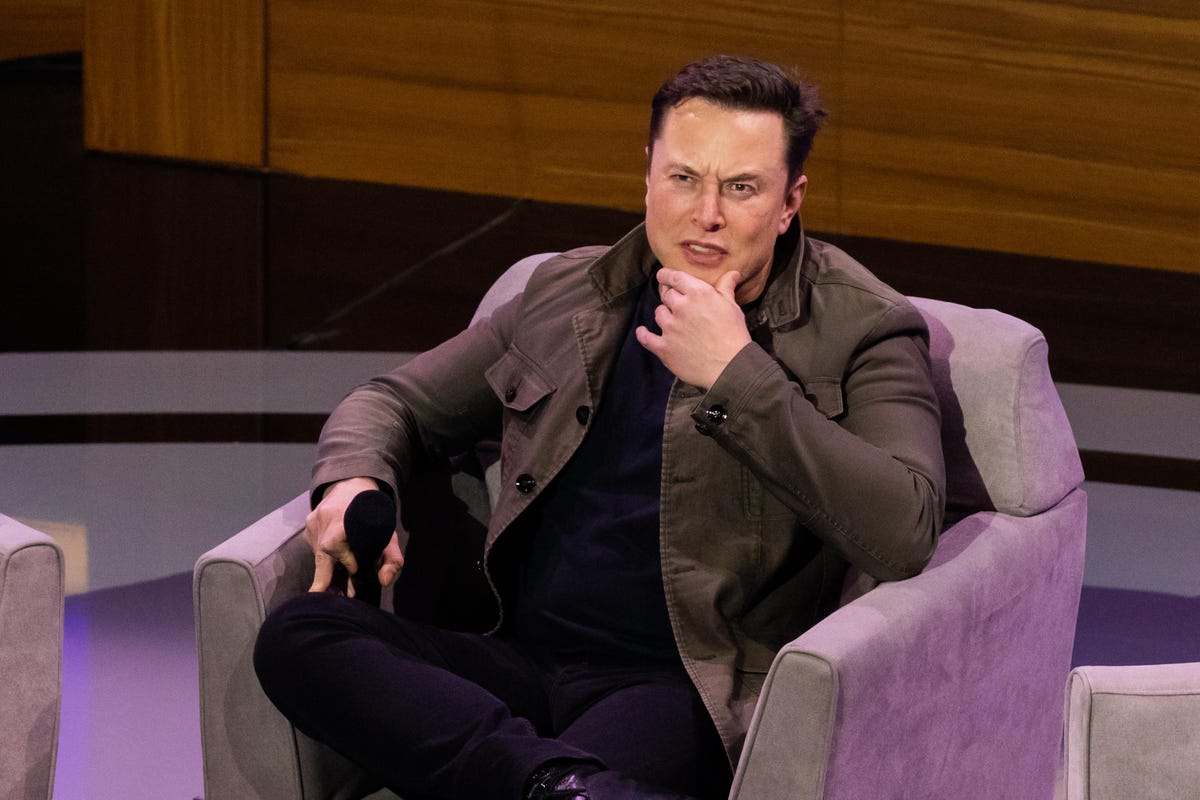
Elon Musk
James Martin/CNET
Musk isn’t going anywhere. It’ll take more than an ad hoc Twitter poll to push him off Twitter.
The search to find someone “foolish enough” to take the job has big, fat asterisk at the end of Musk’s pledge to step down. Musk’s tenure at Twitter has been marked by theatrics more so than change. He’s flirted with several new ideas, but then backtracked once their abundant downsides became clear. Musk tried monetizing the platform by allowing anyone to get verified for $8, but then curtailed the feature when advertisers balked at accounts impersonating Coke, Nintendo and, most notably, Eli Lilly. Musk in October declared that free speech is back – but cracked down after hate speech flourished on the platform.
The common theme is that Musk making a spectacle of himself before quietly backtracking. His next act may be a public search to find a replacement, but even if he temporarily vacates the executive chair, I predict whoever follows him will only be keeping the seat warm – and not for long. The Twitter Circus rolls on and on.
“Foolish” enough for the job? Obviously.
— Daniel Van Boom, senior writer
Reed Hastings
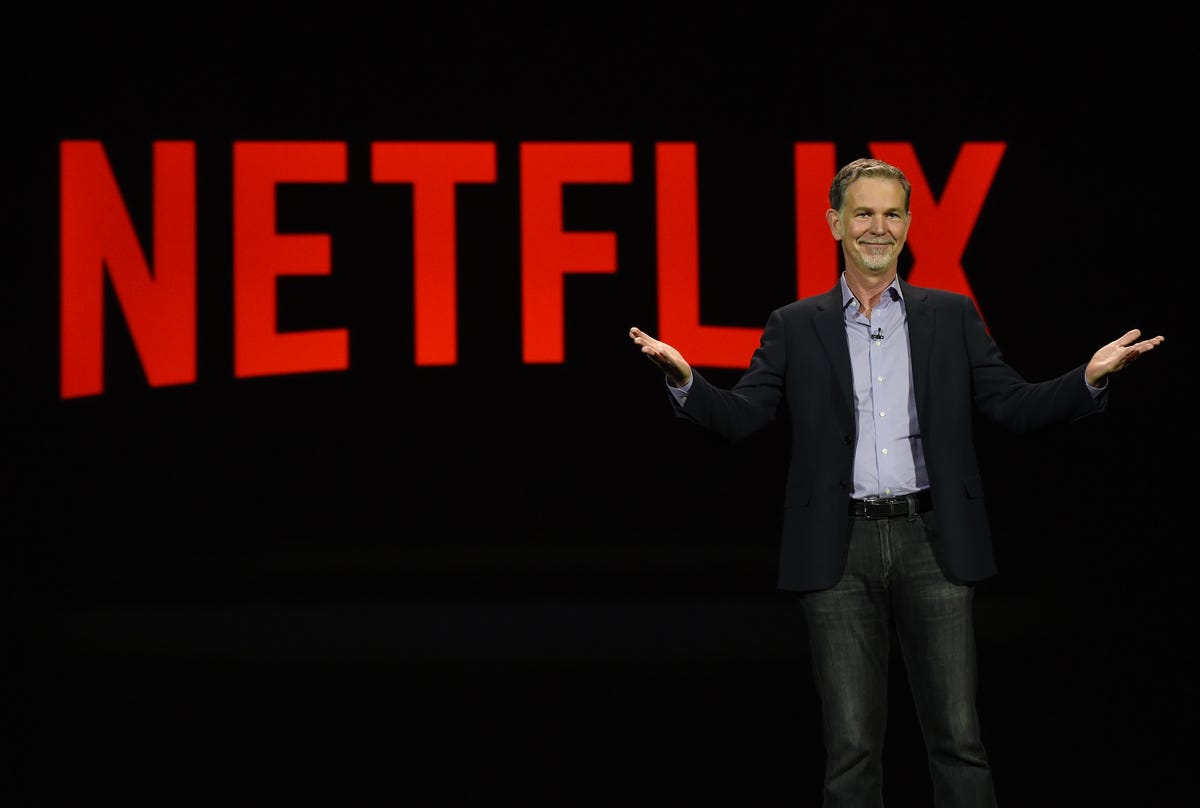
Reed Hastings
Getty
Netflix’s co-CEO Reed Hastings has already completed the single most crucial requirement for winning Musk’s approval: public flattery. Calling him “the bravest, most creative person on the planet,” Hastings told the NYT Dealbook conference last month that what Musk has “done in multiple areas is phenomenal.”
“His style is different,” Hastings conceded. “I’m trying to be, like, a steady, respectable leader up here and he’s just out there.”
Realistically, it’s doubtful Hastings has much interest in the job. One of Twitter’s recurring challenges is content moderation, which is largely uncharted territory for Hastings because Netflix doesn’t mess around with user-generated content. Twitter’s primary business model, advertising, is also new ground for Hastings. But one of Musk’s main objectives – to build up Twitter’s own subscription business – is definitely something Hasting knows a thing or two about.
When Netflix introduced a co-CEO structure in 2020, the company was emphatic at the time that the dual-leader arrangement wasn’t a first step toward Hastings’ exit. Now Ted Sarandos, who previously was Netflix’s head of content and the architect of its original programming strategy, and Hastings split the responsibilities of Netflix’s top executive role. But the fact remains that Netflix now has one CEO already built in, making the transition simpler if Hastings were to depart – perhaps to become that “steady, respectable leader” at Twitter.
“Foolish” enough for the job? No.
— Joan E. Solsman, senior writer
Who Should (or Could) Be Twitter’s CEO After Elon Musk – CNET
Source: Media Star Philippines


0 Comments